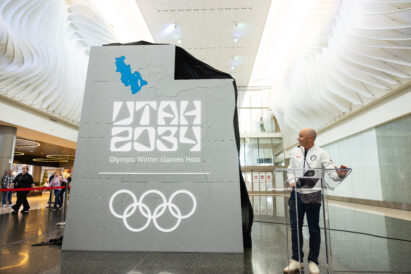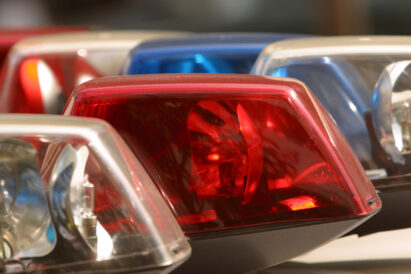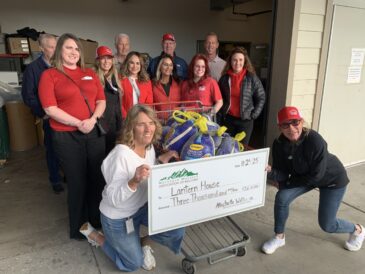Utah health experts weigh in with summer safety tips

BENJAMIN ZACK, Standard-Examiner file photo
Groups of people use the Legacy Parkway Trail for biking and walking in Farmington on Thursday, Aug. 21, 2014.Buckle up, stay hydrated, wear your bike helmet and don’t swim alone.
Those were just a few suggestions from health experts at Intermountain Primary Children’s Hospital to help ensure a fun and safe summer vacation.
“Buckling up immediately when you get in the vehicle, and making sure your children are inside, seasted, and properly restrained in a seatbelt, car seat or booster seats appropriate for their size and age will help you and your family avoid tragedy this summer,” said Dr. Katie Russell, trauma medical director and trauma surgeon at Primary Children’s and trauma surgeon at University of Utah Health.
Russell also said drivers need to be aware that kids are out of school for the next three months and take the proper steps to make sure they are completely focused while driving. That means no texting while behind the wheel and making sure you’re well rested before you take off in your vehicle.
In the summer of 2021, Seantae Jackson and his family were on their way to enjoy a backpacking trip when another vehicle passed a semitrailer. The driver did not see the Jackson’s van and hit them head-on at a high speed. The driver of that vehicle did not survive. Jackson and her husband, Trevor, along with their 14-year-old twins and a friend were critically injured. Owen, who is one of the twins, also suffered a seizure, broken back, optical nerve and traumatic brain injury. He spent nine days in a medically induced coma.
“Let every action you make reflect the love you have for the people who matter most,” said Jackson, now a safe driving advocate, along with her husband. The Sandal Blue Foundation promotes hope and healing for motor vehicle crash survivors and their families. “Stay safe for them and act in ways that protect others, because someone loves them just as deeply.”
Owen, who had a miraculous recovery is getting ready to serve a mission to Texas this summer for The Church of Jesus Christ of Latter-day Saints. When he returns, he said he wants to become a firefighter and go to college.
Jackson said it took years for Owen and the rest of the family to recover, but they will be affected for the rest of their lives, she said.
Wearing a helmet while riding a bike or participating in other activities such as skateboarding, is also of the utmost importance, said McKenna Clawson, an advanced practice provider at Primary Children’s. She said helmets decrease the risk of head and brain injury by up to 88%, and injury to the upper and mid-face by 65%.
“Always wear a Department of Transportation approved helmet,” Clawson said. “It’s your best defense in a crash.”
Clawson said more people on bikes and in cars increases the risk of accidents. In fact, every year, more than 3.5 million children ages 14 and under in the United States are treated for injuries related to cycling, roller blading, skateboarding and other sports-related activities. That’s another reason to always wear a helmet. Regular helmet fits are also important because kids grow out of them.
Whether you’re a child or an adult, the health experts added it’s a good idea to wear bright-colored or reflective clothing, especially if you’re participating in activities at dusk. Bikes should also have appropriate lights and reflectors.
It’s also important to make sure your equipment is in optimal condition before you use it, Clawson said. That means inspecting your bikes and ATV and taking the off-highway vehicle education class required by the state. Learning basic first aid skills can also make a significant difference in critical situations.
Russell said to stay in tune with your body and don’t exceed your limits, which is a main cause of falls, broken bones and lacerations during backcountry activities.
Because there may be limited or no cell service in certain areas, Russell said it’s never wise to go alone. In addition, check the weather forecast before you go, so you can bring the appropriate gear and clothing — and always let a family member know where you’re headed and how long you expect to be gone.
“Go with a group and know everyone’s level of ability, including your own,” Russell said.
While you’re outside having fun in the sun, don’t forget to hydrate often — water is preferred — stay in shady places if possible between 10 a.m. to 4 p.m., and wear sunscreen with SPF 30 or higher, loose, light-colored clothing, hats and sunglasses. Also know the symptoms of heatstroke, which include dizziness, nausea, confusion, trouble walking, seizure, heightened body temperature, fast heartbeat, dry skin, muscle cramps, headaches, fainting and coma.
Don’t ever leave your kids in the car, even if you’re going to be gone for a minute, experts said, as temperatures in the vehicle can rise rapidly. When left in a hot car, a child’s body temperature can increase three to five times faster than an adult, causing heat stroke and even death. Between 1998 and 2017, 761 U.S. children died after being left alone in a hot car.
Michelle Cameron, community health manager at Primary Children’s, said a lot of people open their windows to let the fresh air in during summer months. However, anything more than four inches can be risky, especially if you have young children.
“Window screens can pop out even with a little bit of pressure from a child’s hand,” she said. “The best way to prevent window falls is to remember the 4-inch rule.”
Cameron said each year in the U.S., 15 to 20 children under the age of 11 die and nearly 15,000 are injured after falling out of a window.
Lastly, don’t swim alone, supervise children closely, always wear a life jacket, swim in designated areas, avoid consuming alcohol while in the water, assign a water-watcher for kids and take shifts, and learn CPR and basic water-rescue skills.
Intermountain Health is encouraging the public to take the Summer Safety Pledge by going to www.intermountainhealth.org/SafetyPledge. This will serve as a reminder to take every safety precaution while enjoying your favorite summer activities.



